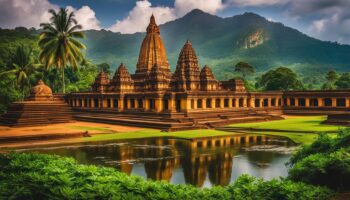Monsoon season in Sri Lanka: 10 tips to prepare for it
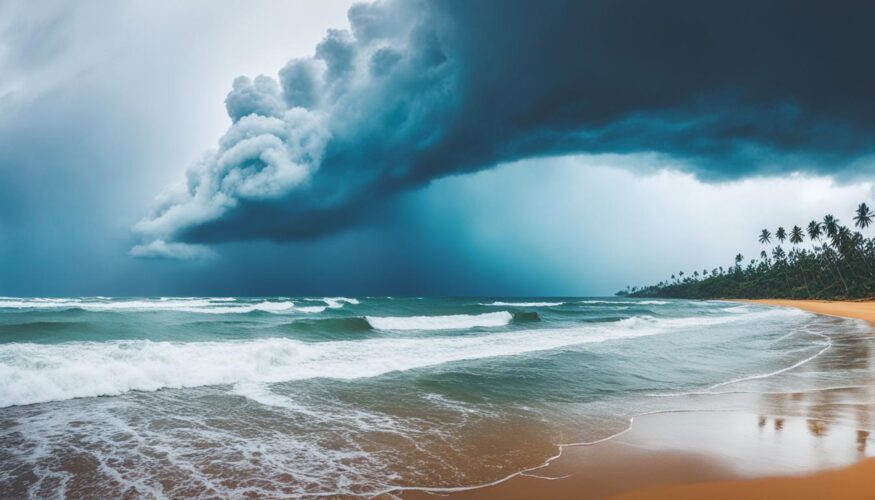
Sri Lanka is a popular destination for tourists from all over the world who are looking for a relaxing beach holiday, exploring history and culture or an outdoor adventure.
Before travelling to Sri Lanka, however, it is important to understand that the island has some risks that need to be considered. One of these risks is the monsoon season, which lasts from May to September in the southwest and west of the island and from October to January on the northeast coast.
The monsoon season brings heavy rainfall to Sri Lanka, which can cause flooding, landslides and other problems. In this article, I give you some tips on how to prepare for the monsoon season in Sri Lanka.
Know Your Way
Monsoon in Sri Lanka: When and Where Does It Occur
The monsoon in Sri Lanka is a seasonal phenomenon that greatly affects the weather there. The monsoon usually occurs from May to September, with the heaviest rainfall in June and July. Monsoon rains are very intense and can cause flooding and landslides in places. The most affected areas are in the west and south of the island.
How to choose the right area for your monsoon holiday
When planning a holiday in Sri Lanka during the monsoon season, it is important to choose the right area that will be relatively protected from the torrential rainfall. The northeastern part of the island, such as the coastal town of Trincomalee, often offers better weather during this period. Conversely, areas such as Galle and Colombo are often hit by heavy rains. It is also important to follow weather forecasts and local recommendations to choose the right destination.
Can be affected by heavy rains and floodsBeautiful beaches, but with high risk of rainfall
| Southern Areas | Northeastern Areas | Western Areas |
|---|---|---|
| Can be affected by heavy rains and floods | Often offers better weather during the monsoon season | Affected by frequent rains and floods |
| Beautiful beaches, but high risk of rainfall | Seaside locations such as Trincomalee are suitable for holidays | Possibility of heavy rain and sea storms |
| The popularity of tourist sites such as Galle | Beautiful beaches and a calmer atmosphere during the monsoon | Milder weather than in the south, but still humid |
Packing
When packing for a holiday to Sri Lanka during the monsoon season, it is important to pack the right equipment and clothing that will allow you to move around comfortably and protect yourself from inclement weather. In this section, I bring you tips on what to pack and how to prepare for different situations.
What to pack for a holiday to Sri Lanka in the monsoon season
When packing your suitcase for a holiday to Sri Lanka, focus on the following items. Shorts, T-shirts, dresses) – prepare enough clothes to change clothes every day as the monsoon season can be wet
- Sheet or umbrella – to protect you from any showers and downpours
- Close-fitting shoes – pack comfortable and waterproof shoes, so you can enjoy outdoor activities even when it’s wet
- Swimsuit and towel – don’t forget to pack your swimsuit and towel, so you can enjoy the beaches and pools
- High factor sunscreen – even when it’s particularly cloudy, it’s still important to protect your skin from the sun’s rays
- Insect spray – due to the higher incidence of mosquitoes and other insects during the monsoon, it’s a good idea to pack insecticidal spray, To protect yourself from bedbugs
Remember, packing properly will prepare you for different situations and allow you to enjoy your Sri Lanka holiday even during the monsoon season.
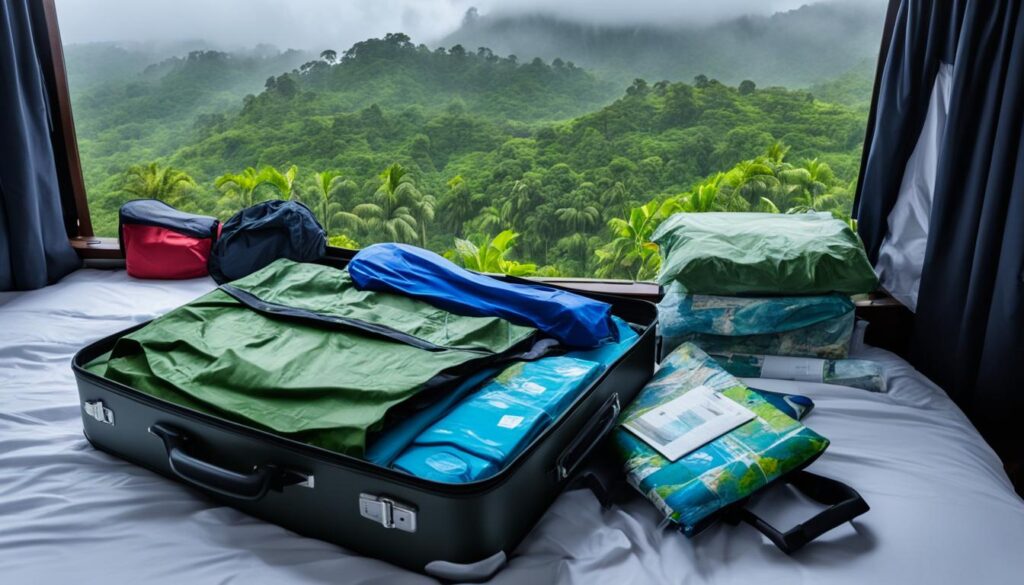
Health
How to protect yourself from malaria and dengue fever during the monsoon
During the monsoon months in Sri Lanka, there is an increased risk of infectious diseases such as malaria and dengue fever. To protect yourself and minimize the risk of illness, it is important to follow the following precautions:
-
- Wear a protective mosquito repellent that contains DEET or picaridin.
- Use insect nets or indoor repellents to prevent mosquitoes from entering your accommodation.
- Wear long sleeved clothing and trousers to minimize exposure to mosquito bites.
- Avoid areas with high mosquito densities, especially after dark and during nights.
- Keep windows and doors well closed and use air conditioning or ventilation equipment to keep mosquitoes out.
- Seek medical attention if you experience symptoms of malaria (fever, chills, fatigue, muscle aches) or dengue fever (fever, joint pain, rash, muscle and bone pain).
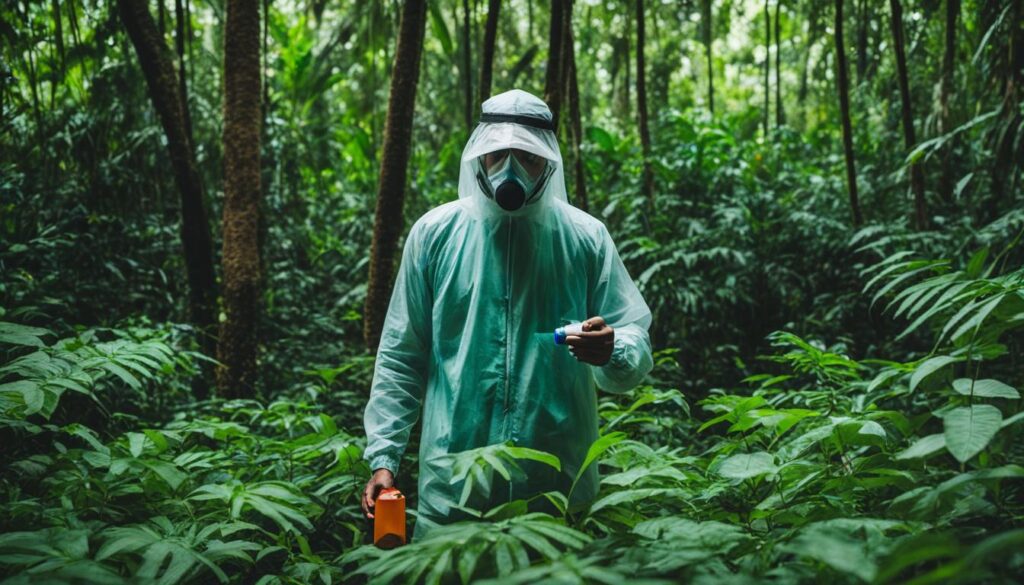
What vaccinations are recommended?
Before travelling to Sri Lanka during the monsoon season, it is important to check your vaccination history to see if you need any specific vaccinations. However, there are some universally recommended vaccinations for travellers going to areas with a high risk of infectious diseases. These recommended vaccinations include:
- Hepatitis A and B vaccinations
- Polio (tetanus) vaccination
- Typhoid (typhoid) vaccination
- Polio (polio) vaccination
- Meningococcal meningitis vaccination
Regular consultation with a health professional is essential, to get accurate information about vaccinations and other precautions needed for your specific trip.
Insurance
It is important to have adequate travel insurance to ensure safety while travelling during the monsoon. Monsoon season can bring unpredictable weather and natural disasters that can affect your travel and cause problems. Travel insurance can provide you with financial protection and reassurance in case of loss of luggage, flight cancellation or treatment for medical conditions.
When choosing the right travel insurance, it is important to consider several factors. First, check if the insurance provides sufficient coverage for travel needs during the monsoon season. In addition to traditional coverages such as medical, baggage loss and liability, you may find extended coverage against adverse weather and natural disasters useful.
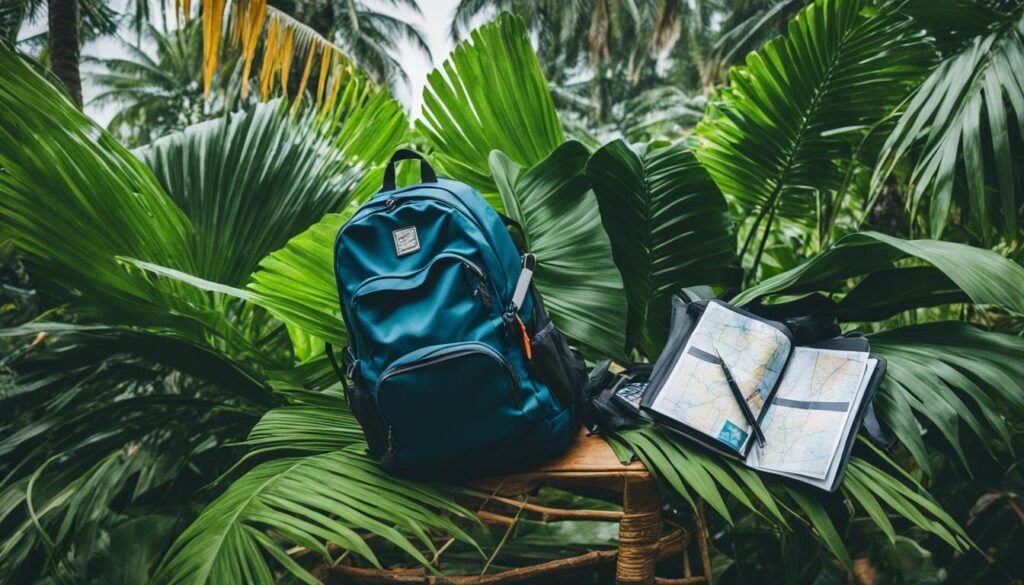
Secondly, check the exact terms of the policy and whether it covers specific situations related to the monsoon season, such as cancellation of travel due to bad weather, the need to re-plan your itinerary or evacuation from the disaster area.
It is also important to read and understand the policy terms and conditions so that you know what risks are not covered. Find out clearly what the limits of the sum insured are and what the procedure is for reporting damage or loss, etc.
Keep in mind that some travel insurance policies provide special coverage for monsoon risks, such as trip cancellation due to inclement weather or evacuation due to a natural disaster. Therefore, it is important to carefully compare different insurance companies and their offers to choose the most suitable one for your specific needs.
Also remember to carry a copy of your insurance policy and contact details for emergency assistance so that you can easily access support and information if needed.
Contact licensed travel insurance companies and consult with experts who can guide you in choosing the right insurance in accordance with your needs and plans.
Flexibility
How to prepare for weather that may change your plans
During the monsoon season in Sri Lanka, it is important to be prepared for unexpected changes in the weather. Here are a few tips on how to adapt:
- Follow weather forecasts: Check the weather updates and forecasts regularly to stay up to date. Be prepared for possible thunderstorms, heavy rain, or other adverse conditions.
- Have alternative plans: If you plan outdoor activities such as hiking or beaching, have other activities in reserve that you can do in case of inclement weather. For example, a visit to a museum, traditional market or spa.
- Pack the right equipment: Pack an umbrella, raincoat and waterproof shoes in your luggage. This will ensure you are prepared for any rain and mud.
- Be patient: Monsoon weather is unpredictable, so you may have to adjust your plans or avoid certain areas. Be patient and ready to adapt.
What activities are suitable for monsoon weather?
During monsoon season in Sri Lanka, you are not limited to indoor activities. There are many fun and interesting activities that you can do even in rainy weather. Here are some of them:
- Cultural Experiences: Visit traditional dance performances, artist exhibitions, historical sites or check out local festivals and celebrations.
- Sri Lankan Cooking: Attend cooking classes and learn how to prepare traditional Sri Lankan dishes. It’s a great way to spend time and learn about the local culture through gastronomy.
- Wellness and Relaxation: Take advantage of wellness centres that offer massage, yoga and other relaxation services.
- Shopping: Explore local markets and shops where you can shop for traditional souvenirs, jewelry and other interesting items.
It is important to remember that activities in the monsoon season may differ from those in the dry season, but despite the inclement weather you can still have a wonderful stay in Sri Lanka.

Local advice
In a world where the monsoon occurs regularly, locals are equipped with experience and advice on how to cope with the season. It is useful to learn from them and take advantage of their wisdom when planning your stay in Sri Lanka during the monsoon season.
How do the locals cope with the monsoon
The locals are aware of the arrival of the monsoon and prepare for it. This includes, for example:
- Backing up and locking valuable items and documents.
- Maintaining a supply of food and drinking water.
- Providing suitable clothing and footwear for protection from rain and wetness.
- Providing a safe place for shelter from rain and wind.
It is also important that the locals know the terrain and are familiar with local conditions, enabling them to respond adequately to flood and landslide risks.
What can you learn from the locals
Local people have a wealth of monsoon experience and their advice can be invaluable. Here are a few valuable tips you can use when planning your stay:
- Be flexible and prepared for changes in plans.
- The monsoon is unpredictable and many activities can be affected by inclement weather.
- Be patient and take advantage of the opportunities the weather offers, such as sampling the local cuisine or visiting temples and places of interest
It is also good to remember that the local people are friendly and helpful. If you have questions or need help, don’t be afraid to contact the locals who will be happy to help you.
Learn from the locals and take advantage of their knowledge and experience to make the most of your holiday in Sri Lanka during the monsoon season.

Travel Restrictions
During the monsoon in Sri Lanka, it is important to take safety precautions. Find out when it’s safe to travel and how to avoid the dangers of flooding and landslides here.
When is it safe to travel in Sri Lanka during the monsoon
Sri Lanka’s monsoon season often sees heavy rains and dangerous flooding. If you are planning to travel to affected areas, it is important to monitor the weather forecast and information from local authorities. All tourist activities should be undertaken with the utmost caution and adherence to safety guidelines. Always consult the current situation before travelling and consider changing your plans if necessary.
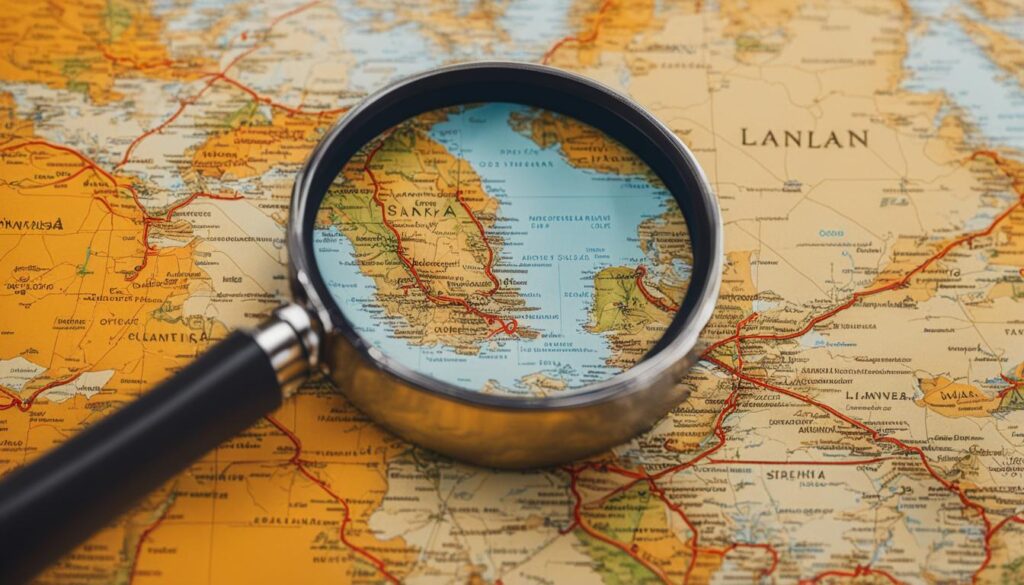
How to avoid the risk of floods and landslides
To avoid the dangers of floods and landslides during the monsoon season, you should follow these recommendations:
- Follow warnings especially from local authorities and the current weather forecast.
- Avoid roads and areas that are known for high risk of floods and landslides.
- Stay on major roads and required routes that are considered safe.
- If there are heavy rains or flooding, seek safe shelter and wait for the situation to improve.
- Use only transportation that complies with safety regulations and authority recommendations.
During the monsoon, it is important to keep safety in mind and take precautions to minimize risk. By following these recommendations, you can enjoy your holiday in Sri Lanka even during the monsoon season.
Supplies
What supplies to bring if you stay in one place during a storm
If you decide to stay in one place during a storm in Sri Lanka, it is important to carry the necessary supplies. Ensuring you have enough food, drinking water and basic hygiene items is essential to cope with adverse weather conditions. It is advisable to prepare the following supplies:
- Durable food such as canned food, dried fruits and vegetables, nuts, dried meat, etc.
- Drinking water in suitably sealed bottles or jerry cans.
- Basic medicines and a first aid kit containing bandages, disinfectant, painkillers, anti-diarrhoeal medicines and other medicines you may need.
- Batteries and flashlights in case of power failure.
- Hygiene items such as toilet paper, soap, towels, toothpaste and toothbrushes.
- Clothing and blankets to provide you with the warmth and comfort you need.
If you arrange these supplies in advance, you will be more confident and comfortable during the monsoon season in Sri Lanka.
Where to find supplies in Sri Lanka
In Sri Lanka, supplies can be found in local shops, supermarkets and markets. Most major towns and tourist areas have a good supply of food and other basic necessities. It is advisable to buy local produce and support the local economy. If you are in a remote area, it can be a challenge to find supplies, so it is advisable to ensure you have sufficient supplies in advance.
Discover the beauty of Sri Lanka even during the monsoon season and be prepared with the necessary supplies!
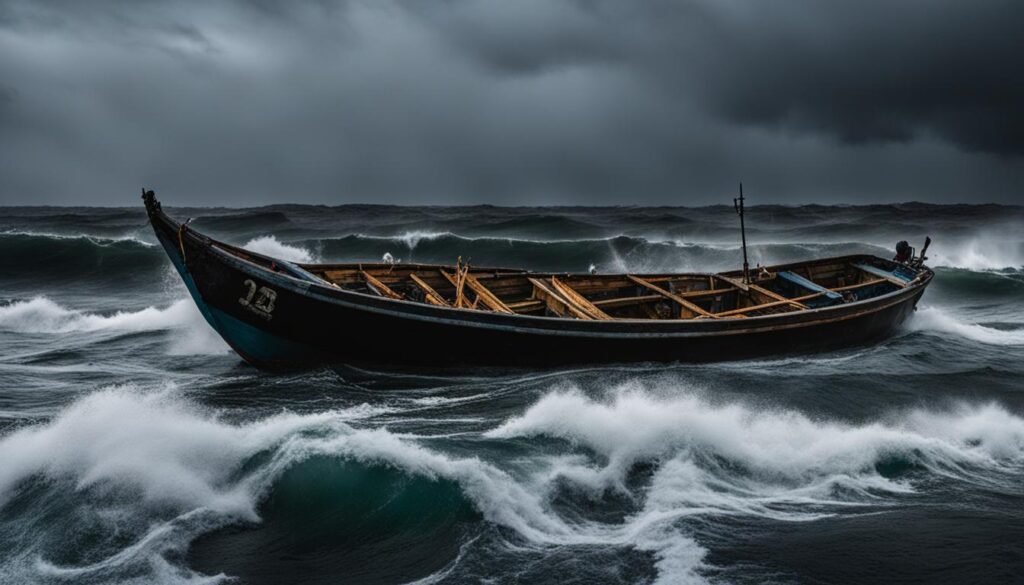
Weather Information
When planning a trip to Sri Lanka during the monsoon season, it is important to keep an eye on the weather forecast and be well informed about current conditions. This way, you can better prepare for any changes and ensure a safe and comfortable holiday.
How to monitor the weather in Sri Lanka
There are several reliable sources you can use to monitor the weather in Sri Lanka. Here are some of them. You can visit their official website to find accurate forecasts.
- Meteorological apps: There are also many mobile apps that provide weather forecasts for Sri Lanka. Just download one of them on your phone and you will always have updated information at your fingertips.
- Local News Channels: If you’re already in Sri Lanka, you can follow local news channels, which often include weather reports. Local television or radio stations will provide you with the latest information.
What are reliable weather forecast sources?
When looking for reliable weather forecast sources, it is important to keep a few factors in mind:
- Source credibility: Choose sources that are known and trusted. Meteorological offices and well-known apps usually have accurate information.
- Data Update: Make sure the source you choose updates its data regularly. The weather can change quickly, so it’s important to have the latest information.
- Local Information: If you’re in Sri Lanka, it’s also useful to have access to local news and forecasts. Local sources can provide details about specific regions and places you will be visiting.

Weather tracking allows you to plan your activities and travel according to expected conditions. However, remember that weather is a natural phenomenon and can change quickly. Be flexible and prepared for unexpected situations that may occur during the monsoon season in Sri Lanka.
Communication Plan
In case of an emergency, it is important to stay in touch with family and friends back home. There are several communication options that can help you in case of an emergency.
How to stay in touch with family and friends in an emergency
If you find yourself in danger during the monsoon in Sri Lanka, it is important to have a communication plan with family and friends. The best option is to tell them your travel plan before you leave and share updates with them about your stay.
For example, you can arrange a local SIM card for your mobile phone so that you can access local networks. If the internet is still working after the monsoon, you can use social media or apps like WhatsApp, Messenger or Skype to keep your loved ones updated on your situation.
What are the communication options in Sri Lanka
Mobile communication is available in Sri Lanka via the GSM network. Many operators offer international roaming, allowing you to use your mobile phone abroad for a possible fee. However, roaming charges can be high, so it is advisable to be aware of your options and costs.
Another option is to use Wi-Fi, which is available in many cafes, restaurants and accommodation in Sri Lanka. If you download an internet communication app beforehand, you can use this option to make calls and send messages.
FAQ
Monsoon in Sri Lanka: when and where does it occur
Monsoon in Sri Lanka occurs between May and September in the southwestern and western parts of the island and from October to January on the northeastern coast. It is advisable to enquire about this before travelling and plan your holiday to be minimally affected by the monsoon rains.
How to choose the right area for your holiday during the monsoon season?
When choosing an area for your Sri Lanka monsoon season holiday, it is important to consider which part of the island you want to visit and what type of activities you have planned. For example, if you are planning an active holiday with surfing and water sports, it will be more appropriate to choose an area with monsoon waves. On the other hand, if you prefer quiet relaxation, you can focus on areas that are not directly in the monsoon path and have lower rainfall.
What to pack for a holiday to Sri Lanka during the monsoon season?
When travelling to Sri Lanka during the monsoon season, it is important to pack appropriate clothing and footwear. I recommend packing a waterproof jacket, a raincoat, a good quality umbrella and suitable shoes or sandals that are moisture resistant. Additionally, it is advisable to carry lightweight and quick-drying clothing, as moisture can cause an increased need to change clothes.
Tips for clothing, footwear and other equipment
Select clothing and footwear that are suitable for wet conditions. It is recommended to wear lightweight and quick-drying materials that will keep you dry. Shoes should be water resistant and provide good protection against slippery surfaces. In addition, a raincoat, waterproof jacket, good quality umbrella, insect repellent and sunglasses may be useful.
How to protect yourself from malaria and dengue fever during the monsoon?
To protect yourself from malaria and dengue fever during monsoon, it is important to use insect repellents containing DEET, wear long sleeves and trousers and use mosquito nets. It is also advisable to consult a doctor for appropriate vaccinations and other precautions before travelling to Sri Lanka.
What vaccinations are recommended before travelling to Sri Lanka?
Before travelling to Sri Lanka during the monsoon season, vaccination against hepatitis A and B, typhoid and tetanus is recommended. Consult a specialist or your doctor for accurate recommendations on vaccinations and other precautions.
Why is travel insurance important during the monsoon?
Excessive rainfall and dangerous flooding can occur during the monsoon in Sri Lanka. Travel insurance can provide you with protection in case of lost luggage, health problems, flight cancellations or emergency evacuation. It is therefore important to have adequate travel insurance that covers these possible inconveniences.
How to choose the right travel insurance
When choosing travel insurance for a holiday in Sri Lanka during the monsoon season, it is important to check whether it covers the risk of floods and other risks associated with monsoon rains. Also make sure that the insurance covers loss of luggage, medical problems and evacuation in case of an emergency. Compare quotes from different insurance companies and choose the one that best suits your needs.
How to prepare for the possibility that the weather may change your plans
When planning a holiday to Sri Lanka during the monsoon season, it is important to be prepared for the fact that the weather can change quickly and affect your plans. Have alternative activities in reserve that you can do in case of rain, such as visiting museums, temples, markets or restaurants. Also bring a waterproof jacket, raincoat and umbrella to be prepared for unexpected precipitation.
What activities are suitable for monsoon weather?
You can still do various activities during the monsoon season in Sri Lanka. For example, you can visit monuments such as temples and forts, explore cities such as Kandy or Galle or indulge in traditional Sri Lankan cuisine. In addition, wellness activities such as massage, yoga or meditation are also suitable.
How do the locals cope with the monsoon?
Local people in Sri Lanka are used to the monsoon and cope with it in different ways. For example, they build houses that are resistant to rainfall, public transport is adapted to monsoon conditions and local people often take refuge indoors, such as temples or restaurants, during heavy rains. It is interesting to learn more from local people about their customs and traditions during the monsoon season.
When is it safe to travel in Sri Lanka during the monsoon?
The security situation in Sri Lanka can change rapidly during the monsoon season. It is important to monitor reports on weather conditions, road conditions and current flood or landslide warnings. It is also advisable to check with local authorities and possibly professional tourist guides who have up-to-date information and, more importantly, experience of safety in your area.
How to avoid the risk of flooding and landslides?
If you are travelling to Sri Lanka during the monsoon season, it is important to follow safety precautions and avoid areas that are at risk of flooding and landslides. Keep up to date with weather reports, avoid these areas during heavy rains and listen to the instructions of local authorities and emergency services. Remember that your personal safety is always paramount.
What supplies should you take with you if you stay in one place during a storm?
If you decide to stay in one place during a storm in Sri Lanka, it is important to have adequate supplies of food, water and other essentials. Carry enough canned food, dry food, water to drink, candles, torches, medicines and other essentials. Also make sure you have adequate fuel supplies for any emergency purposes.
Where can you find supplies in Sri Lanka?
You can find supplies in Sri Lanka in local shops, markets and supermarkets. If you are staying at a hotel resort, they will probably have a stock of food and other essentials that you can purchase. However, it is advisable to buy enough supplies before the storm so that you have sufficient supplies if local shops remain closed or have limited supplies.
How to track the weather in Sri Lanka
You can use various sources of information to monitor the weather in Sri Lanka. Local TV stations and radio stations usually provide up-to-date weather forecasts. You can also follow online meteorological websites that offer accurate information about the weather in Sri Lanka. It is also recommended to follow local news websites and social media for up-to-date information on weather conditions.
What are reliable sources of weather forecasts?
For reliable weather forecasts in Sri Lanka, it is recommended to use official weather sources such as the Sri Lanka Meteorological Department. This organization provides updated information on weather and weather conditions across the island. Other reliable sources are recognized international meteorological organizations that provide worldwide weather forecasts.
How to stay in touch with family and friends in an emergency
There are various communication options you can use to stay in touch with family and friends in an emergency in Sri Lanka. It is advisable to carry a mobile phone with a sufficiently charged battery and enough credit to make calls. You can also make use of internet services and apps such as Skype, WhatsApp or Messenger, which allow you to make free calls and send messages over Wi-Fi or mobile data. Also carry a list of important phone numbers and contacts for local authorities and emergency services.
What are the communication options in Sri Lanka?
There are various communication options available in Sri Lanka. The most common are mobile phones, which have coverage on most of the island. You can purchase a local SIM card or use your mobile operator’s roaming service. Another option is to use hotels or restaurants that offer Wi-Fi access. Remember that signal coverage and internet availability can vary depending on location and weather conditions.
